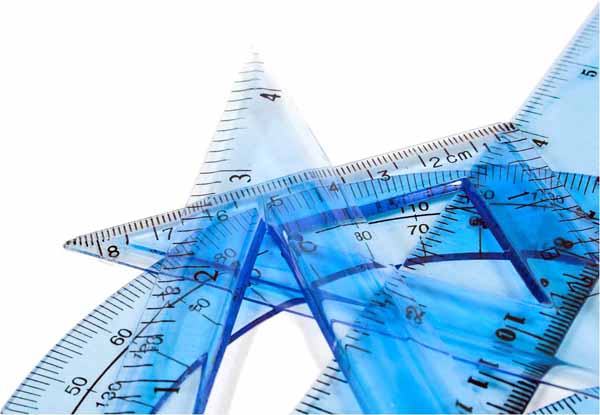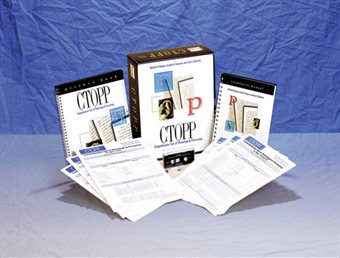The art of the dyslexia test
Quick facts about the art of the dyslexia test

- There is no definitive test for dyslexia
- A proper assessment includes interviews with parents, tests of hearing and vision, an assessment of phonemic awareness, and a battery of cognitive tests
- Testing before grade three is strongly recommended
- In the U.S., the Individuals with Disabilities Education Act (IDEA) provides a parental right to request assessment for potential learning disabilities
- In Canada, each province has its own policies and procedures regarding assessment of learning disabilities
- In the U.K., the Special Education Needs Coordinator (SENCO) from your school usually makes decisions about assessment
- Tests are usually administered by educational professionals, qualified psychologists or in some cases, trained dyslexia assessors
- Testing typically takes between 2-4 hours and occurs over two days
- Commonly administered tests include The Comprehensive Test of Phonological Processing (CTOPP) and the Dynamic Indicators of Basic Early Literacy Skills test (DIBELS)
- Inexpensive testing options are available and can offer good value
Quick links to sections below:
- Free dyslexia test
- First steps
- Help finding a private assessor (US)
- Help finding a private assesor (UK)
- Help finding a private assessor (Can)
- How professionals test
- Common tests
- What happens after the test
Free dyslexia tests
For children ages 5-7 Years
Try our simple test below. While this is only a high level assessment, it can provide some some sense of whether or not dyslexia is likely. For questions
below answer yes, no or unknown. The test assumes the child/student is at least 5 years old. Scoring information is provided further below.
Scoring
0-20% Very unlikely to have dyslexia
30-40% Unlikely to have dyslexia
50-60% Significant chance of dyslexia
70%+ Very significant chance of dyslexia
First steps
If you suspect your child may have dyslexia or a learning disability,
always begin by discussing it with your teacher and school officials. Ideally, they will take the initiative in
conducting an assessment to determine if your child qualifies for
special education resources. Some schools test all students early as the first step in a 'response to intervention' approach to diagnosis and remediation. Under that model, students are placed into one of three tiers of support and can benefit immediately from extra help, if necessary.
Unfortunately, schools often don't take that
initiative, have
long waiting lists or don't require assessments at
all. In that case the onus falls on you as a parent to take action.
Help finding a private assessor

If your school has failed to conduct an assessment in a reasonable
time, or you're just not happy with the assessment they have done, and
assuming you can afford it, you may want to have a private assessment
done. The information below is to help you in that quest. Specific
advice is broken out by country.
Unfortunately very few assessors specialize in dyslexia and many schools now only recognize assessments from trained psychologists. And yet most professionally trained psychologists do not include dyslexia identification/screening among their services. This presents a conundrum, but one you can overcome by helping to educate your assessor and advocating for consideration of dyslexia as part of the assessment and in the final report.
Be sure to request a written report of the assessment, ideally one containing specific classroom accommodations, including assistive technology that can be of help to your child. This will make it much easier to get these accommodations into the next iteration of your child's learning plan.
Professional testing
Below is country specific information on finding an assessor.
United States
In the United States,under the Individuals with Disabilities Education
Act (IDEA) you have a right to request an evaluation of your child if
you feel something formal needs to be done to assist their learning. The
request needs to be made in writing to your school. We suggest you
mention that you would specifically like dyslexia assessment as part of
the process, but just getting the evaluation is key.
|
For more information and advice on this process watch the National Center for Learning Disabilities video to the right. If your school will not conduct the kind of detailed assessment you want, or the waiting list is too long, the American Psychological Association provides a helpful directory
of psychologists. |
You can search for a psychologist according to specialty, but the list does not include psycho-educational assessments; it does include "Education/personal development" and "Learning disabilities". Be sure to inquire with the specific psychologists in your community as to exactly what assessment services they provide.
United Kingdom
In the U.K., there are two helpful directories for finding psychologists. The first is the Directory of Chartered Psychologists from the British Psychological Society. This is very similar to the Canadian Psychologist Register noted below. The second is the Professional Association of Teachers of Students with Specific Learning Disabilities (Patoss). Patoss hosts a Tutor/Assessor index containing certified assessors as well as tutors. You simply have to enter your postal code, a distance you are willing to travel and your county.
Canada
Each Canadian province has jurisdictional authority over education, creating a hodge podge of special education assessment processes. And while your school may conduct an assessment, awareness of dyslexia is relatively low (very low) in Canada and thus it is very unlikely to be identified. More likely dyslexia will be lumped into a general category of LD or, if you are lucky, described as a reading disability. Unfortunately you may have to seek out a private assessor to test for dyslexia.
An excellent general directory of psychologists in Canada can be found at the Canadian Register of Health Service Psychologists. Simply enter your postal code and indicate how far you are prepared to travel and a list of psychologists is generated. Many of those in the list include psycho-educational assessments among their services.
In addition, below is the very short list of specialist dyslexia assessors / assessment agencies we are aware of in Canada. Please let us know of other dyslexia assessment services.
- We include only trained or accredited assessors or assessing agencies in our list, but cannot guarantee the qualifications.
- The appearance of an assessor or assessing body in our list is not an endorsement by the Dyslexia Reading Well.
| Province | City | Org / Name | Service |
|---|---|---|---|
| Ontario | Hamiliton | Dyslexia Resource Centre | Dyslexia test / assessment |
| Ontario | Mississauga | Centre for Assessment and Remedial Education (CARE) | Dyslexia test / assessment |
| Ontario | Ottawa | The Open Door | Dyslexia test / assessment |
| Ontario | Ottawa | The Red Oak | Psyc. Ed Assessment |
Assessing the assessor
You should always carefully vet any psychologist or assessor to make
sure they will meet your needs. Here are some questions we suggest you
ask:
- What is your area of expertise? More specifically, do you have experience assessing for dyslexia?
Be aware that many assessors may not label a reading disability as dyslexia. They may label it as a Specific Reading Disability or a Developmental Reading Disorder. This may not be a problem, but ask the assessor to clarify exactly what their terms mean and if it is the same as dyslexia. - What do you assess exactly?
Be sure the assessment is comprehensive, meaning that it evaluates verbal, non verbal and academic skills. Ideally it should assess intelligence (cognition) as well as specific academic skills, assigning a standardized assessment score, or grade level equivalent.
At one point it was common to only diagnose dyslexia where there was evidence that the disability in reading was 'unexpected' relative to general intelligence, therefore intelligence had to be assessed too. Today this is not as common and should not be required since the latest research has largely proven that dyslexia is a specific brain based disorder, largely independent of intelligence.
Still, getting the intelligence assessment is helpful as it provides valuable information for building the Individualized Education Plan or whatever intervention plan and accommodations that might follow. - How much does the assessment cost, how long will it take and will you provide a written report?
The dyslexia assessment may cost between $1-5K or equivalent for the two or three sessions needed to complete the evaluation. This money is well spent, but be sure to inquire as to any grants or government support available. Inquire at your school first.
In most jurisdictions, a written report will be critical for ensuring your child or student is eligible for special education support. Be sure to get one! - Will your assessment include a recommendation for instruction and accommodations?
Because the assessment will be used to develop your child's Individualized Educational Program (or equivalent) the more specific the assessment the better. For example, for a student with dyslexia it could recommend specific types of instruction for phonemic awareness or reading fluency. It should also recommend the allowance of additional time and/or a separate room for taking exams. These kinds of specific recommendations will make your job easier when dealing with the school afterward.
Don't assume the school will know how to treat dyslexic reading problems or have the right resources—many don't know how and most won't have the right kind of resources. Schools are often bound by provincial, territorial or federal teaching methods or standards that won't work for the dyslexic student.
Finally, remember that just because your child has difficulty reading, they may not be assessed as having dyslexia, they may have other reading deficits; see our Types of Dyslexia page for more information.
How professionals test
What will they test exactly?
There is no single dyslexia test or dyslexia screening tool that ensures an
accurate diagnosis. Proper, professional dyslexia
testing typically involves three elements:
1) An interview with the
parent(s) to establish that a reading problem exists, and to review family
history. You may be asked to bring report cards, previous assessments or
standardized test results and samples of your child's written work.
2) Tests of vision and
hearing from your family doctors as needed, to eliminate them as possible contributing factors
3) A battery of memory, phonemic awareness, reading, vocabulary and intelligence tests to assess cognitive strengths and weaknesses.
 CTOPP is a commonly administered test
CTOPP is a commonly administered testCommon tests
A list of the most common professionally administered dyslexia tests are below.
Pen and paper tests
| Test Name | Tests For.... | Ages / Grades | Maker |
|---|---|---|---|
| Dynamic Indicators of Basic Early Literacy Skills (DIBELS) | Phonemic awareness, alphabetic principle, accuracy and fluency with connected text, reading comprehension, and vocabulary. | K-Gr.6 | Dynamic Measurement Group |
| Test of Early Literacy (aimsweb) | Letter naming, letter sound, phoneme segmentation | K-Gr.1 | Pearson |
| Comprehensive Test of Phonological Processing (CTOPP-2nd Edition) | Reading related phonological processing skills | 4-Adult | Pro-Ed, Inc. |
| Lindamood Auditory Conceptualization Test (LAC-3rd Edition) | Ability to perceive and conceptualize speech sounds using a visual medium and measures the cognitive ability to distinguish and manipulate sounds | 5-Adult | Pro-Ed Inc. |
| Test of Phonological Awareness (TOPA 2nd Edition) | Phonological awareness | K-Gr.3 | Pro-Ed Inc. |
| The Phonological Awareness Test | A standardized assessment of children's phonological awareness, phoneme-grapheme correspondences, and phonetic decoding skills. | 5-9yrs | Linguisystems |
| Yopp Singer Test of Phoneme Segmentation* | Phonemic Awareness | K-Gr.6 | Hallie Yopp (developer) |
| Woodcock Reading Mastery Test - III | Reading readiness, basic skills, and comprehension | 4-Adult | Richard Woodcock. Distributed by Pearson |
| Gray Oral Reading Test - IV | Oral reading fluency and comprehension | 6-Adult | Weiderholt & Bryant. Distributed by Pearson |
| Wechsler Intelligence Scale for Children (WISC) | Intelligence quotient. Not a direct test of dyslexia but commonly administered with dyslexia tests. | 6-17yrs | David Wechlser. Distributed by Pearson |
Software based assessment
The pen, paper and oral tests above are the best assessment tools available, but they can take a long time to make arrangements for and be very expensive, running between $1000-4000 (U.S.) for a battery of tests. This is not an option for many parents. Assessment software can present an alternative, providing many of the benefits at a much lower cost.
How long does a test take?
Expect between 3-6 hours of testing time, conducted over two or three sessions. While it would be convenient to test in one session, younger children, especially dyslexics, have difficulty maintaining concentration and tire easily. By testing over two sessions, usually early in the day, your child will have the opportunity to perform at their best, providing a more accurate assessment of their ability.
What happens after the test
1) Review the Results
You should receive a written report from the psychologist or assessor
and discuss the results with them in some detail. It's important that
the report not just indicate scores, but include an explanation of what the
scores mean. But even more importantly, if the report finds evidence of dyslexia or any
other learning disability (don't expect a conclusive diagnosis) then
it's essential that the report also recommend specific classroom
accommodations because the next step is...
2) Meet with your school
Share the results of the assessment with your child's teacher and whichever member of the administration helps prepare or approve of your child's individual education plan. Be sure that any accommodations or recommendations made by the assessor are incorporated into your child's day to day learning environment. These accommodations may include:
- Extra time for tests and assignments
- Flexibility in terms of assessment method
- Audio books, or access to text to speech or speech to text applications or other assistive technology
- Written text presented in smaller chunks, use of larger fonts or other text style accommodations
The cost of not testing
A remarkable 2008 study by Jackie Hewitt-Main found that 53% of a
British prison population had dyslexia compared to about 10% in the general population.
Her reading intervention project had tremendously positive effects on the
inmates' confidence and dramatically lowered re-offending rates.The prison study is not mentioned to alarm (99% of dyslexics don't go to jail) but just
to underline the very high cost that poor literacy skills can take on individuals
and our community and the tremendous potential good that can come from an early dyslexia test and intervention—and of course self esteem boosting.
The key to a positive and successful reading experience is early testing.
Our story
Our local school board literally has a multi-year backlog for professional assessment of student disabilities and has for some time. In second grade we paid for our first private psycho-educational assessment which helped to identify strengths and weaknesses but didn't contain the word dyslexia or any recommendations regarding reading remediation.
A couple years later we were lucky to find someone trained as a dyslexia assessment specialist who was also a tutor and trainer. She opened our eyes to the fact that most provincial school boards just aren't assessing or treating dyslexia very well. To no surprise, she confirmed our belief that dyslexia was very likely the cause of the reading problems we had been seeing.
Just before entering high school (grade 9) we paid for a second psycho-educational assessment to assess the learning gap and strengths and weaknesses. This proved invaluable, as for the first time we successful gained entry to the systems classes (more intensive support) available for students with learning disabilities in Ontario. Without the report this would not have been possible.
Our lesson: For those with dyslexia,
you can't count on the system to work, and may have to take matters into your own
hands. Arrange for a psycho-educational assessment early and find a good tutor, or private school
if necessary. Note that professional assessments can run over $5000, making them prohibitively expensive for some parents.
Back to the top of Dyslexia Test
- Home ›
- Dyslexia Test
New! Comments
Share your thoughts or ideas! Leave us a comment in the box below. You can post it at this site only or on Facebook too, it's up to you.